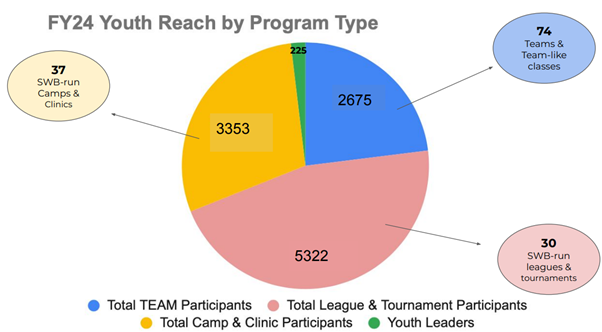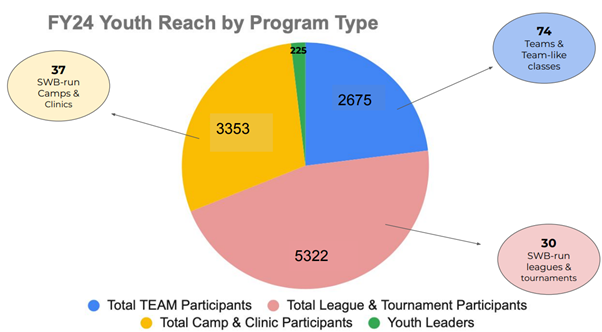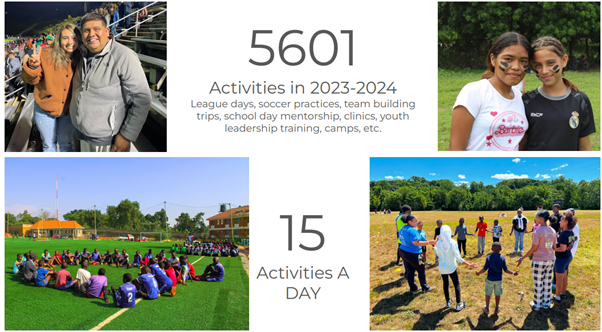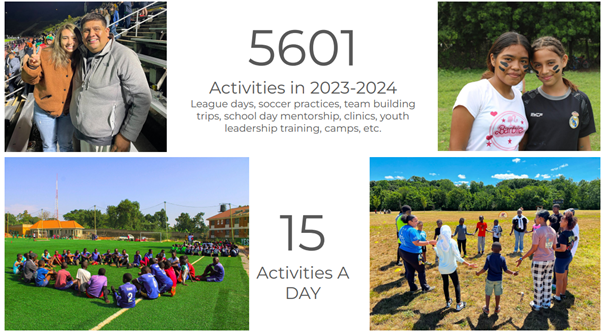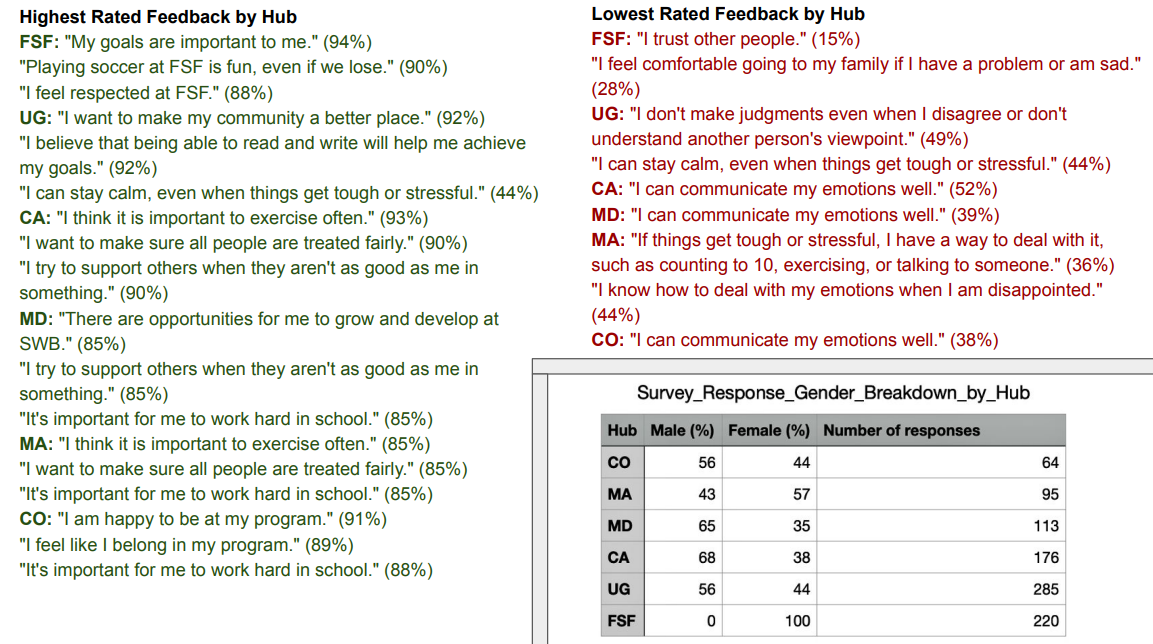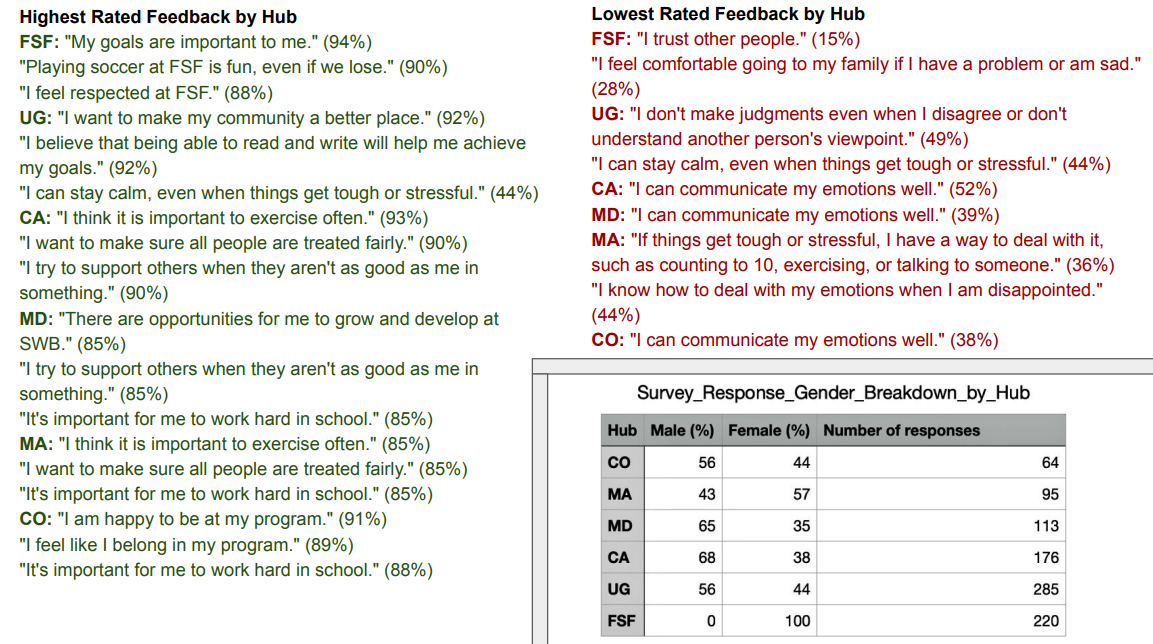Soccer Without Borders (SWB) uses soccer, education and community to create belonging for over 7700 youth, all of them, underserved; these are newcomer refugees, asylees, unaccompanied minors and immigrants to the United States or Uganda and marginalized girls in Nicaragua between the ages of 5 - 20.
We work with most of them between 35 - 42 weeks a year and if we don’t we are holding camps and clinics for those who cannot participate more consistently during an academic year. Our youth represent 82 different countries of origin and speak 46 different languages.
My name is Jennifer Tepper and I’m the Executive Director of SWB and my parents and I came to the United States in 1979. We were all English-language learners, finding our way to create a future in a place foreign to us. Our journey started in poverty and saw us move out of it; it saw us through a myriad of misunderstandings around what US society wanted from my parents as professionals and me as a student compared to what my parents knew from their home country of Taiwan. And for me, despite having friends, it wasn’t until I found my middle school soccer team at the age of 12 that I understood what it meant to have a place where you can be your authentic self and feel like you belong.
Annette, a SWB participant from the Democratic Republic of Congo shared:
“I decided to join SWB, because SWB took me in as family. They accepted me as who I am and treated me as one of theirs. They help me with a lot, school wise, mental wise, physical wise...I can't thank SWB enough for real they are family, and I will forever take them as family because I know I can also come to them. Moral of the story, I BELONG HERE.”
And SWB synthesizes all inputs into an Effectiveness Report. Promising results from 2021 - 2023 include:
- 95% high school graduation rate for regular SWB participants; 61% overall graduation rate for English language learners in the same states [Department of Education].
- Reduced school absenteeism and increased social self-efficacy compared to peers at the same school [Palo Alto University].
- 92% of youth reported that SWB is a place they feel comfortable practicing English.
- Gains in all 5 socio-emotional learning skills [Up2Us Sports]
- 97% of participants reported that they feel safe at SWB, 96% reported that they feel a part of the SWB community, 95% say their coach is a mentor and that SWB is a safe space [Youth survey].
- 90%+ retention rate this past year with middle and high school youth, whereas 70% of US youth quit sport by age 13 [Aspen Institute].
Our MEL systems capture outcomes and feedback from multiple perspectives.
Laia Pedreno Mateu, a counsellor in Oakland, shared:
“I have noticed, over and over, that the students that enroll in Soccer Without Borders are able to create new connections sooner and in a healthier way than students who are not. The physical activity and social connections help to cope with the anxieties of immigrating and traumatic experiences. The relationship with the coach is often one where they can bring issues that they do not feel they can talk about with caregivers or teachers, even counsellors like me. I feel this program saves lives, not in a figurative way, but in a literal way.”
MEL unites SWB and allows us to focus on our north star, providing quality connections, mentorship, play and access to soccer for underserved youth. It gives us a sense of our collective impact - with four program locations in the United States that are significantly distanced from each other and our programs in Nicaragua and Uganda allow us to see what it is we are bringing to life, TOGETHER. It allows us to know, that it takes our entire village to do this:


